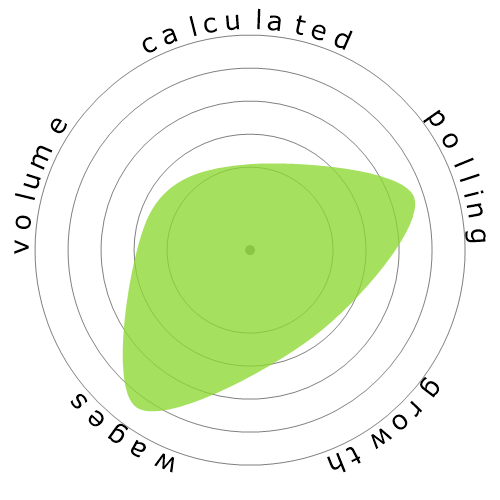Where Would You Like to Go Next?
Or, Explore This Profession in Greater Detail...


What does this snowflake show?
What's this?
We rate jobs using four factors. These are:
- Chance of being automated
- Job growth
- Wages
- Volume of available positions
These are some key things to think about when job hunting.
People also viewed
Calculated automation risk
High Risk (61-80%): Jobs in this category face a significant threat from automation, as many of their tasks can be easily automated using current or near-future technologies.
More information on what this score is, and how it is calculated is available here.
User poll
Our visitors have voted there's a low chance this occupation will be automated. However, the automation risk level we have generated suggests a much higher chance of automation: 65% chance of automation.
What do you think the risk of automation is?
What is the likelihood that Airline Pilots, Copilots, and Flight Engineers will be replaced by robots or artificial intelligence within the next 20 years?
Sentiment
The following graph is shown where there are enough votes to produce meaningful data. It displays user poll results over time, providing a clear indication of sentiment trends.
Sentiment over time (yearly)
Growth
The number of 'Airline Pilots, Copilots, and Flight Engineers' job openings is expected to rise 5.0% by 2033
Total employment, and estimated job openings
Updated projections are due 09-2025.
Wages
In 2023, the median annual wage for 'Airline Pilots, Copilots, and Flight Engineers' was $219,140, or $105 per hour
'Airline Pilots, Copilots, and Flight Engineers' were paid 356.0% higher than the national median wage, which stood at $48,060
Wages over time
Volume
As of 2023 there were 93,670 people employed as 'Airline Pilots, Copilots, and Flight Engineers' within the United States.
This represents around 0.06% of the employed workforce across the country
Put another way, around 1 in 1 thousand people are employed as 'Airline Pilots, Copilots, and Flight Engineers'.
Job description
Pilot and navigate the flight of fixed-wing aircraft, usually on scheduled air carrier routes, for the transport of passengers and cargo. Requires Federal Air Transport certificate and rating for specific aircraft type used. Includes regional, national, and international airline pilots and flight instructors of airline pilots.
SOC Code: 53-2011.00
Comments (86)
20 years it will start with cargo flights.
Another 10 years after maybe commercial flights.
If an accident happens like where two planes go down due to MCAS designed by boeing. This probably set it back years for automation.
Look at Sully landing on the Hudson can a computer do that?
Miracle on the Hudson that was down to skill and knowledge and a brilliant Captain and First Office.
Capacity to AI takeover already exist but passanger trust will take longer to be achieved.
Most emergencies or abnormal events are known about and there are checklists to deal with them, but not every situation is the same or black and white. My specialty is flying airplanes, not computer science, but I find it hard to imagine current AI being able to properly handle a plane in an emergency, especially if it is a new situation.
There is also public opinion. I don’t like the idea because it takes a lot of jobs away, and I know many others don’t like the idea of a couple of hundred people being flown in an airplane completely controlled by AI.
The FAA is also notoriously slow with changing and adapting the rules. They have plenty of rules that are outdated and strange policies, but most of it is in the interest of safety. They prohibit people from flying unless they meet specific physical and mental health criteria. To my knowledge, pilots aren’t allowed to have any form of mental illness, and can’t take antidepressants or other similar things which could easily be treated.
The point I’m making here is that they’re slow to change and this big change would certainly take a while.
Reply to comment